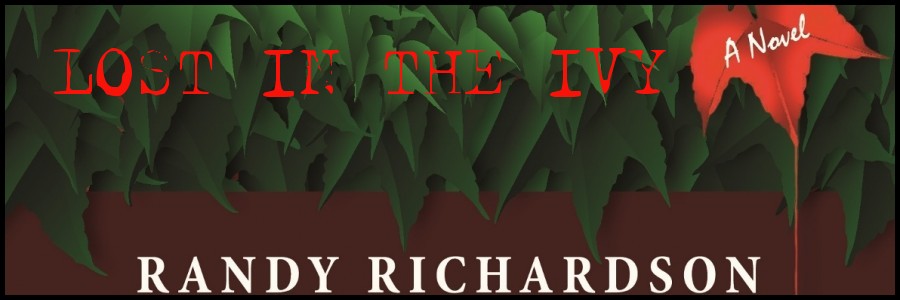The silence of the Lambs
 Wednesday, November 9, 2005 at 02:49PM
Wednesday, November 9, 2005 at 02:49PM Recently I had the pleasure of being interviewed on Megan Willingham’s AdviceRadio program, Writers, Authors N’ More.
Strike that.
I’ve recently twice had that pleasure.
Back up.
I should explain first that Megan’s show is a full hour. That means that I’ve spent two full hours on the air with her chatting up my book, Lost in the Ivy.
If you know me, you know I’m not the chatty type. Five minutes on the phone and I start getting antsy. Ten minutes and I’ll do just about anything to get off the line. “Um, I've got to go. My cat just coughed up a hairball the size of a small planet.”
So it’s an extraordinary accomplishment that Megan managed to pull out of me two hours worth of valuable air time.
If you don’t believe that I can maintain a conversation for a full hour, shoot me an e-mail and I’ll send you a copy of the second interview free of charge. Really. Just click on the e-mail link to your left, write “Send me a CD,” along with your mailing address, and I’ll get a copy out to you ASAP. (Why don’t I just upload the interview to my Web site? I tried that but it seems the file is too large. That’s why I’m offering the CD to my readers at no cost, except for the time it takes to send me an e-mail.)
Now where was I? Oh, yes, I was about to explain how I came to be on Megan’s show not once but twice within a six-week period.
Go back to mid-September when I called in for the first time to Megan’s show. A few minutes after my call-in I hear Megan introducing not me but Bette and J.J. Lamb, authors of Heir Today. Initially I thought that they’d scribed a book about the strands that grow out of one’s epidermis but I learned later that the couple had written a P.I. tale about a twisted inheritance scheme.
I am not a Lamb. Though I’ve been known to become sheepish when put in an uncomfortable situation. Like this one.
My thinking, as I listened to dead air, was that the Lambs would eventually chime in and then I’d be introduced. Instead, I got nothing but silence from the Lambs. I was Hannibal Lecter munching on dead air.
After a minute or two that seemed like an eternity, Megan’s assistant interrupted and mentioned that I was on the line. This is followed by the unmistakable sound of scrambling in the radio studio, which was then followed by Megan returning to the air and announcing that she was cutting to a commercial break.
By this time I’d been on-the-air live for nearly five minutes without speaking a word when Megan returns and apologizes profusely to her listening audience as well as to her guest, little ol’ me.
It turns out there’d been a scheduling mix-up and, as a result, Megan knew nothing about me or my book. Despite this seeming adversity, she plowed forward and somehow filled in the remaining 55 minutes of air space with me. The interview, not surprisingly, was awkward at times (more than once she referred to Chicago’s baseball-playing Cubs as the football-playing Bears), but it wasn’t, in my humble opinion, a complete waste of air space.
I figured that was the end of the story but then a couple weeks later I got an e-mail from my publicist informing me that Megan had invited me back on the show. I’m sure this had more to do with her trying to make up for the initial mix-up than it did my natural wit and charm. But there I was back on Megan’s show for my second hour in the radio spotlight. This time, fortunately, the light shined much brighter.
Here’s how Megan introduced me the second time around:
“Randy, I must tell you I read your book in one sitting. I loved it. I fell in love with it and I couldn’t stop reading it…You captured me.”
Intros don’t come much nicer than that. And the rest of the interview lived up to the intro. Megan found a way to bring all that I’d put into the book come out for her listeners. That’s a true testament to her talents as an interviewer and to her love of books and the craft of writing.
There’s no need for a third time. I’d gotten my charm on the second one.


